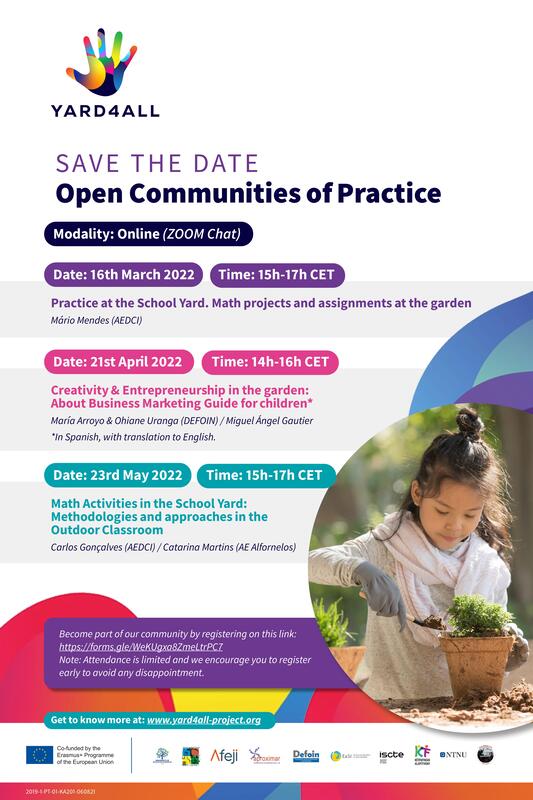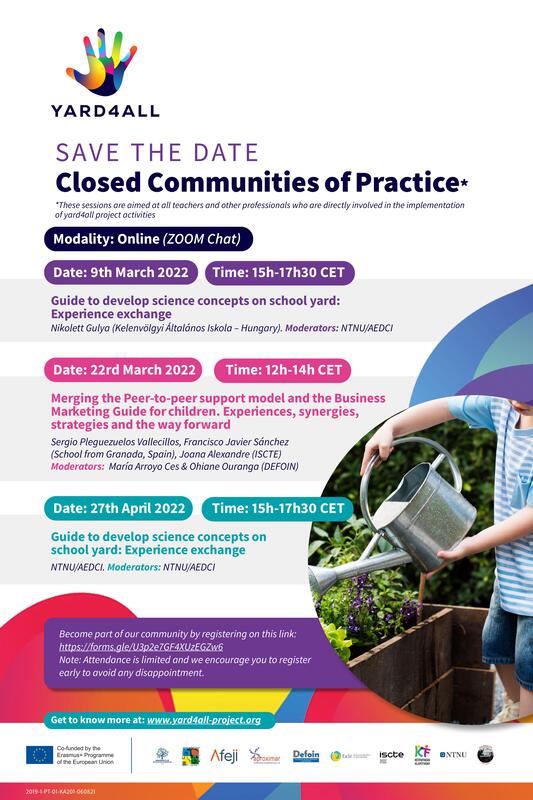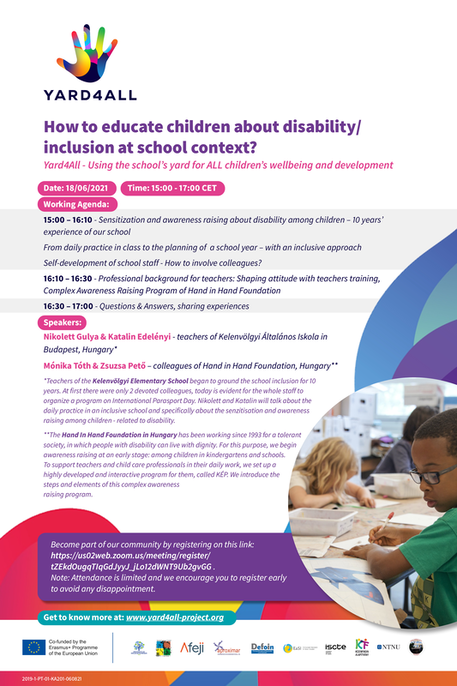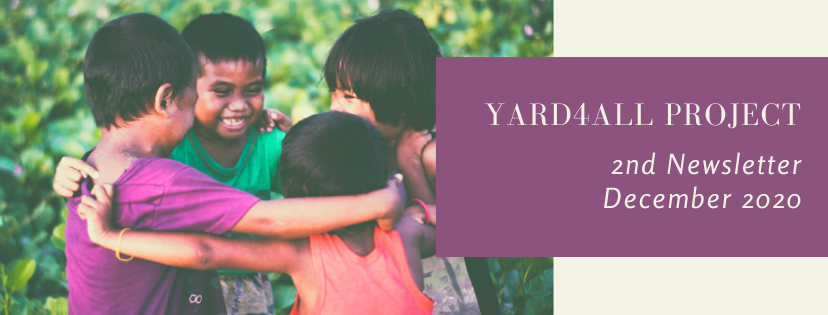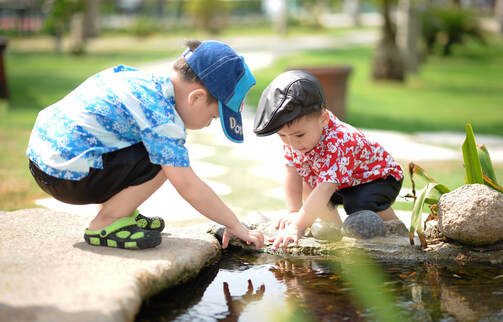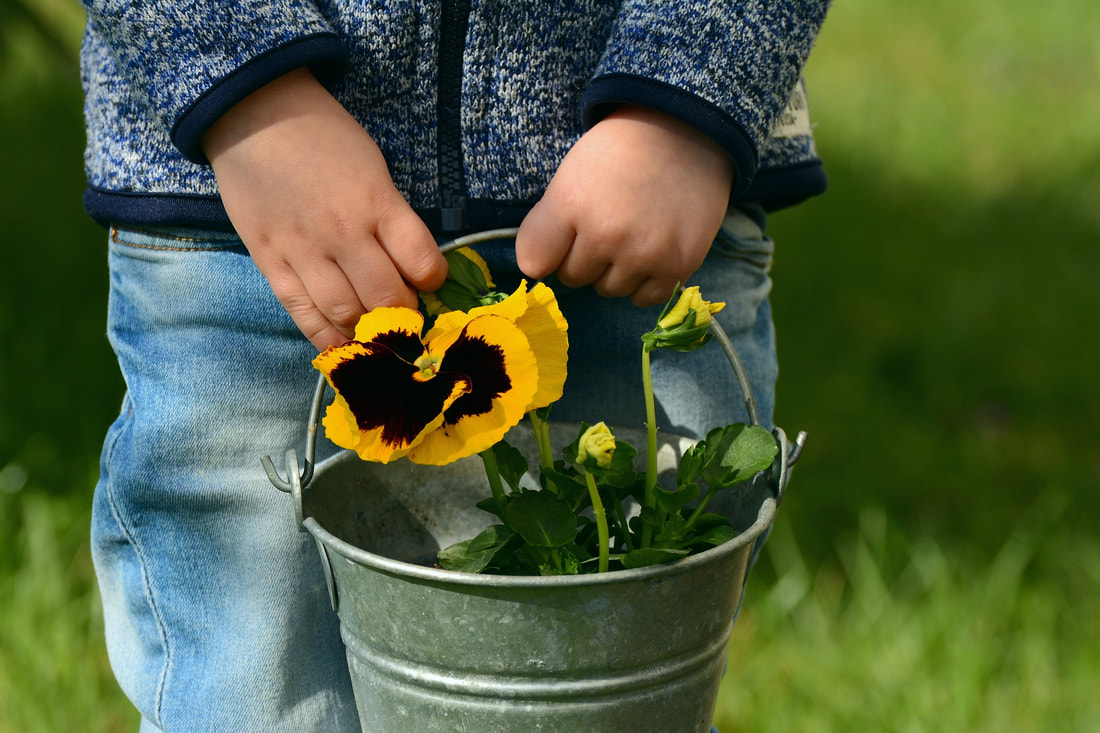|
Yard4All is a project focused on bringing together children with special educational needs (SEN) and children without impairment in a formal and non-formal educational context. Innovative methodologies are offered in order to enable the success of the learners and establish a sense of belonging.
The main goal is to invest on the qualification of teaching & learning, setting up a network of inclusive schools and inclusive community organisations.
The project will be implemented within 3 schools, 2 universities, 3 NGOs, 1 foundation and 1 enterprise. |
News
|
𝐖𝐞𝐛𝐢𝐧𝐚𝐫 𝐘𝐚𝐫𝐝𝟒𝐀𝐥𝐥 Open𝐂𝐨𝐦𝐦𝐮𝐧𝐢𝐭𝐲 𝐨𝐟 𝐏𝐫𝐚𝐜𝐭𝐢𝐜𝐞
When? 16/03/2022, 15:00 - 17:00 (CET) The topic of this webinar is Practice at the School Yard Become part of our community by registering on this link. The goal of this webinar is to outline the process through which the science concepts could be explained to be used in school yard. |
|
𝐖𝐞𝐛𝐢𝐧𝐚𝐫 𝐘𝐚𝐫𝐝𝟒𝐀𝐥𝐥 Closed 𝐂𝐨𝐦𝐦𝐮𝐧𝐢𝐭𝐲 𝐨𝐟 𝐏𝐫𝐚𝐜𝐭𝐢𝐜𝐞
When? 09/03/2022, 15:00 - 17:00 (CET) The topic of this webinar is Guide to develop science concepts on school yard. Become part of our community by registering on this link. The goal of this webinar is to outline the process through which the science concepts could be explained to be used in school yard. |
|
𝐖𝐞𝐛𝐢𝐧𝐚𝐫 𝐘𝐚𝐫𝐝𝟒𝐀𝐥𝐥 𝐂𝐨𝐦𝐦𝐮𝐧𝐢𝐭𝐲 𝐨𝐟 𝐏𝐫𝐚𝐜𝐭𝐢𝐜𝐞
When? 18/06/2021, 15:00 - 17:00 (CET) The topic of this webinar is How to educate children about disability/ inclusion at school context? Become part of our community by registering on this link. The goal of this webinar is to bring into discussion methods through which the children can be teach to be more inclusive and how professors can help them in this process. |
Previous actions...
Do you want know more about the Yard4All project?
|
Check out the 2nd newsletter of the Yard4All project!
|
|
How to include children with special educational needs and disabilities
posted by British Council |
Exemples of good practices of Inclusive Education
published by Inclusion Europe with support of the European Commission |
|
This website has been accomplished during the project Yard4All - Using School’s yard for ALL child’s wellbeing and development, Grant Agreement no. KA201-8A5F302D, implemented with financial support of the European Commission by the Erasmus + Programme. This publication reflects the views only of the author, therefore the European Commission cannot be held responsible for any use which may be made of the information contained therein. |



